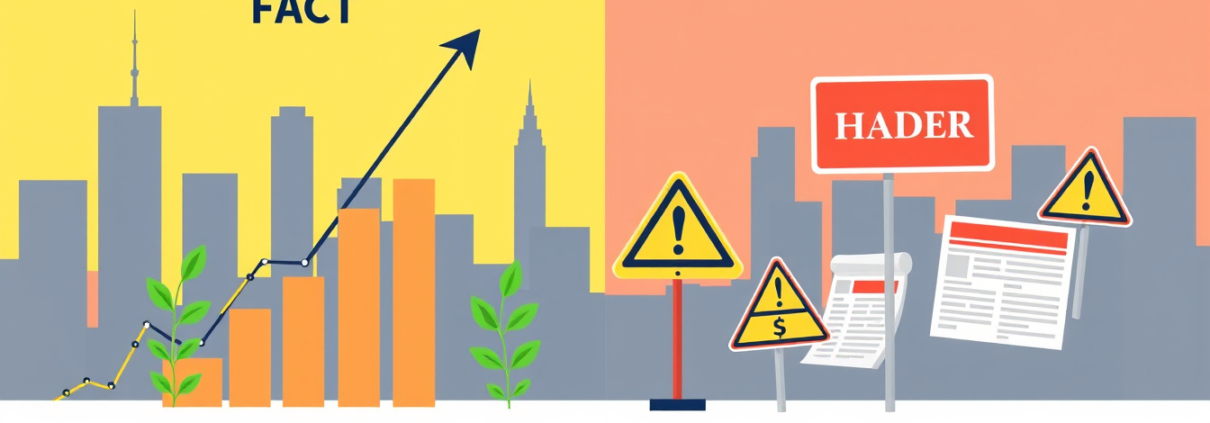The Truth About Economic Recovery: Separating Fact from Hype 📰💡
Economic recovery shows hope but hides hard truths. Experts point out many trends that weigh on the world economy. They mark changes that shake our confidence in recovery. To see these problems, we must check the large-scale economic forces.
Micro vs. Macro: Why Perspective Matters
Many Americans keep hope high about economic recovery. They trust the U.S. economy will bounce back soon. Still, this trust looks only at small-scale issues like local real estate or short-term trends. For example:
- In Arizona, real estate agents see people moving in.
- Many watch local rates or job conditions.
These points address only one part of the full picture. The larger economy sees global moves such as conflicts abroad, shifts in money value, and rising costs that cover far more than local gains.
A Systemic Crisis: Creditism vs. Capitalism
One expert calls our system one of creditism instead of pure capitalism. This view starts with a change made long ago:
- In 1971, the U.S. left the gold standard.
- This break sparked a fast growth in the use of credit.
- U.S. debt soared from $1 trillion in 1964 to $91 trillion today.
This boost in credit did push growth but built a need for more debt. Now, as credit falls when you adjust for rising prices, our system feels heavy strain. This drop in credit may undo the slow growth that we assumed was safe.
The Faltering Dollar and Global Currency Woes
The U.S. dollar, long a top reserve in the world, now faces hard tests. Conflicts like a possible military strike on Taiwan or the war in Ukraine add more risks.
Some currencies hurt by these tests include:
- The British pound, which slipped low after the UK cut taxes for the rich and saw a jump in borrowing costs.
- Japan’s yen, which suffers from global risks.
- Currencies in BRICS countries (Brazil, Russia, India, China, South Africa) grow bolder in world trade.
The UK pension issue shows how mistakes in protecting money forced the Bank of England into fast moves to calm the market, a challenge alike to those the U.S. central bank meets.
Inflation: A Systemic Threat
Inflation is no longer a small price rise. It now touches all parts of the economy. Many governments and central banks print money to stop quick falls in the market. This action may hold back a crash now, but it may also:
- Lower the value of money even more.
- Cut down the real value of personal savings.
- Hurt pensions and savings over time.
What Does This Mean for Individuals?
- Look past local hope: See that small wins in a town do not stop the risk of a worldwide slide.
- Note how debt drives the system: Be wary of fast fix ideas that miss the deep drop in available credit.
- Get ready for change: Swings in money, rising costs, and world risks hit investments, pensions, and your daily life.
- Watch how banks move: The fast buying or selling of bonds and notes can change markets a lot.
Key Takeaways
- Economic recovery is not simple and cannot be seen only by small-scale events.
- The world faces a drop in credit that may bring big problems.
- Shaky money values and deep inflation warn of hard times to come.
- Relying on money printing to stop a slide today might make tomorrow harder.
- Being alert and ready can help you deal with the times ahead.
FAQs
Q1: Why does the growth of credit matter?
A1: Credit helps people spend and invest, which makes the economy grow. If credit stops growing, money flows slow down, and this can bring a downturn.
Q2: What made the British pension issue worse?
A2: The UK cut taxes for high earners, which forced the government to borrow more. This, along with changes in bond deals by the Bank of England, made bond prices fall and damaged pension funds.
Q3: How does rising inflation affect ordinary people?
A3: When inflation spreads, it makes goods more expensive and reduces the buying power of savings. This change hits everyone, from shoppers to those on fixed incomes.
Understanding big economic moves instead of just local cheer is key to facing the times ahead. Awareness and planning can mean the difference between just getting by and living well when the economy changes.








